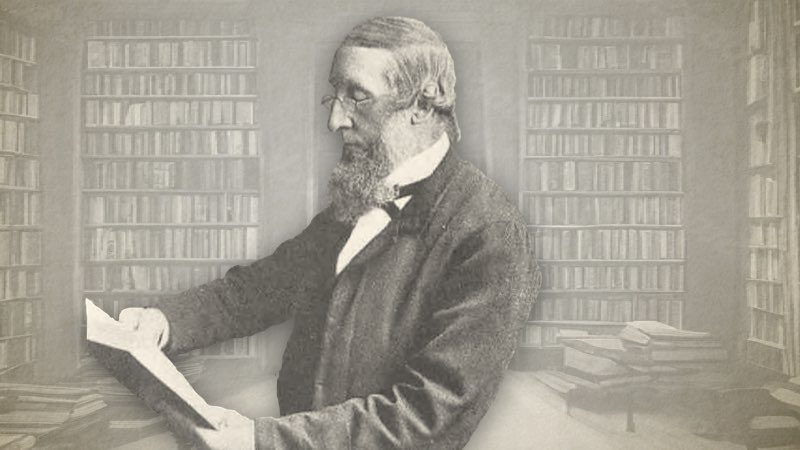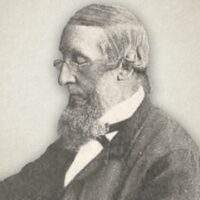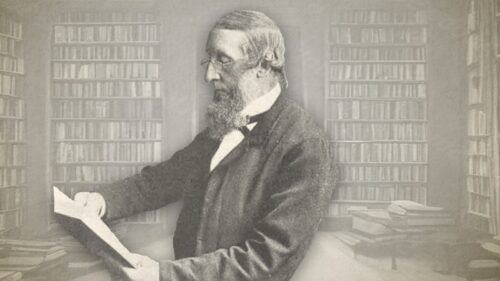
Philpot’s And Popham’s Remembrance Of Grey Hazlerigg
Jospeh Philpot: “I remember him as a slim, dapper, little man with a pale, thin face and an aristocratic nose.”
James Popham, then Editor of the Gospel Standard in the year of Hazlerigg’s death: “It would seem that an archangel cannot be employed in a work so honourable, so glorifying to God, so beneficial to elect men as a true minister of the gospel can. And such a minister was the late Mr. Hazlerigg. To how many he was such is known only to God who sent him and made choice of him, that by his mouth many should hear the word of the gospel, and believe. To all such how beautiful were his feet upon the mountains of divine truths, bringing good tidings, publish ing peace, bringing good tidings of good, publishing salvation; saying unto them, ‘Your God reigneth,’ (Isa. 52:7). Only those who have heard in such a way, with such power receiving the good tidings of good, can understand the sense of respect, love, and reverence which fills the heart for the messenger of peace. To speak personally, it was my mercy and privilege to so hear this messenger of the Lord once. Though it is now many years since, the memory of it is fresh, warm, and pleasant as I write this. The occasion was the annual meeting at Edenbridge. His text was Matt. 6:9: ‘Our Father, which art in heaven,’ etc. Powerful was the word, penetrating, assuring, comfort ing. My state of mind on entering the chapel was one full of fear of rebuke; but mercy wrought by God’s servant, and effected a marvelous change. How many now in heaven, how many still struggling on their way thither, could have borne, or could bear a similar, perhaps a clearer, more powerful testimony to the glorious work of some deliverance wrought by the ministry of our departed friend! Such hearings are vastly different from the mere ‘hearing well,’ so common, bearing, alas, no fruit in the hearer, giving no comfort to a true minister.”
Grey Hazlerigg (1818-1912) was a Strict and Particular Baptist preacher and writer. In 1873, he was appointed the Pastor of Zion Chapel, Leicester. Between 1878-1880, he served as the Editor for the Gospel Standard Magazine. He ministered to a large congregation throughout the course of his life, with twenty-four persons baptized during the last year of his life. Jospeh Philpot recounted a childhood memory of him:
“I remember him as a slim, dapper, little man with a pale, thin face and an aristocratic nose." James Popham, then Editor of the Gospel Standard in the year of Hazlerigg’s death, wrote of him—“It would seem that an archangel cannot be employed in a work so honourable, so glorifying to God, so beneficial to elect men as a true minister of the gospel can. And such a minister was the late Mr. Hazlerigg. To how many he was such is known only to God who sent him and made choice of him, that by his mouth many should hear the word of the gospel, and believe. To all such how beautiful were his feet upon the mountains of divine truths, bringing good tidings, publish ing peace, bringing good tidings of good, publishing salvation; saying unto them, ‘Your God reigneth,' (Isa. 52:7). Only those who have heard in such a way, with such power receiving the good tidings of good, can understand the sense of respect, love, and reverence which fills the heart for the messenger of peace. To speak personally, it was my mercy and privilege to so hear this messenger of the Lord once. Though it is now many years since, the memory of it is fresh, warm, and pleasant as I write this. The occasion was the annual meeting at Edenbridge. His text was Matt. 6:9: 'Our Father, which art in heaven,' etc. Powerful was the word, penetrating, assuring, comfort ing. My state of mind on entering the chapel was one full of fear of rebuke; but mercy wrought by God's servant, and effected a marvelous change. How many now in heaven, how many still struggling on their way thither, could have borne, or could bear a similar, perhaps a clearer, more powerful testimony to the glorious work of some deliverance wrought by the ministry of our departed friend! Such hearings are vastly different from the mere ‘hearing well,’ so common, bearing, alas, no fruit in the hearer, giving no comfort to a true minister.”
Grey Hazlerigg Sermons




